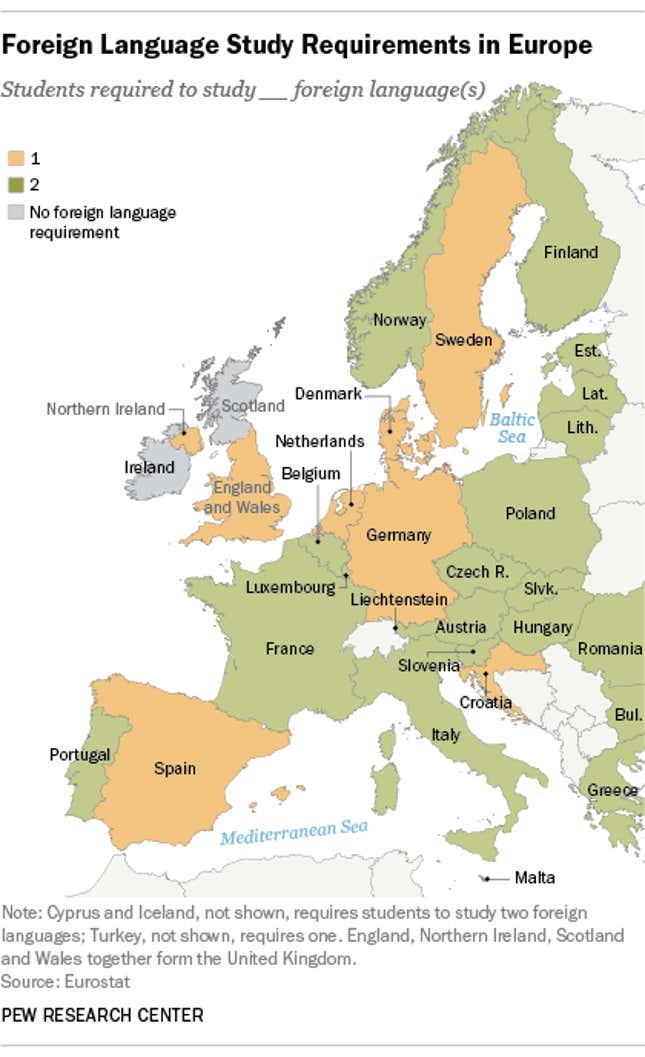Maybe it is time to put to rest the stereotype of the Frenchman refusing to speak English.
In fact, the statistics point in the opposite direction. According to The Pew Research Center, almost every country in Europe requires students as young as six to learn a foreign language, usually English. Even more impressive, over 20 European countries (including France) require students to learn two foreign languages in school for at least one school year.
In 2010, over 90% of secondary school and 73% of primary school students in Europe were learning English in the classroom, according to Pew’s analysis of Eurostat data.
Meanwhile, across the Atlantic, the US does not have any national requirement for learning a second language. While most high schools offer foreign language classes, a mere 15% of American elementary schools do the same. And in 2008 only 18.5% of American elementary and secondary students reported learning a foreign language, according to the American Council on the Teaching of Foreign Languages (PDF).
The disparity may be due to the fact that English has cemented its role as the language of the global economy in the 21st century. It does not come as a surprise, then, that the only two countries in Europe to not mandate foreign language classes are Ireland and Scotland, where the first language is also English.
Marty Abbott, the executive director of the ACTFL, gives another reason for the language disparity. “When you look at Europe, they are geographically closer to each other, and now with the European Union it is beneficial for those in Europe to know other languages because of the employability within the European Union,” Abbott tells Quartz.

English speakers may soon find themselves wishing they had learned another language, Abbott, who speaks Spanish and was once a Latin teacher, says. “We know that it is a fundamentally different world now and it’s time for Americans to wake up because English is not necessarily the lingua franca when you leave the US,” she says.
In any case, the benefits of learning a foreign language extend beyond just being able to speak up in an international business meeting. Being bilingual comes with a whole host of cognitive gains. Researchers have found that bilingual people perform better on standardized tests, for example, and are more perceptive of their environment, helping them differentiate between trivial and significant details.
And, Abbott says, “of course, there is the level of personal satisfaction” gained from being able to “establish relationships with people who speak that language.”
